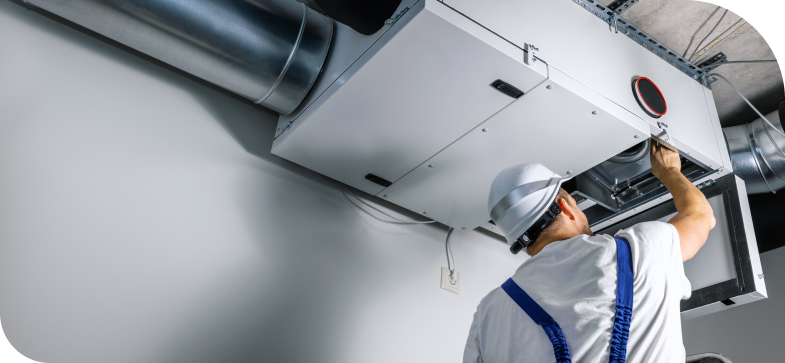Discover Comprehensive Cooling And Heating Providers for All Your Cooling And Heating Requirements
In the world of home comfort, the choice of an ideal Cooling and heating system plays a crucial role. Additional exploration of these systems discloses the elaborate equilibrium in between price and functionality.
Recognizing Various Types of A/c Solutions
heating and cooling systems, essential for managing indoor environment, differ commonly to suit various environments and developing needs. Central systems, one of one of the most typical types, make use of a network of air ducts to distribute conditioned air throughout a building. These systems commonly include elements like heaters, ac system, or warmth pumps. On the other hand, ductless systems, such as split, multi-split, or mini-split systems, supply direct a/c and home heating to certain areas without the demand for ductwork, using more local control and possibly reducing power losses associated with ducting. An additional alternative is the increasingly preferred geothermal heatpump system, which utilizes below ground temperatures to offer heating and cooling, supplying a green option that can considerably reduce energy use with time.
Selecting the Right A/c System for Your Home
Choosing the ideal Cooling and heating system for your home includes careful consideration of several factors. The kind of system-- whether a split system, hybrid, or ductless-- should align with the home's architectural layout and existing ductwork to ensure optimum efficiency and simplicity of setup.

The Relevance of Regular HVAC Maintenance
After picking the best Heating and cooling system, maintaining its performance and long life comes to be the next action. Normal Heating and cooling maintenance is crucial for making sure that heating and air conditioning systems operate at peak performance. Normal upkeep is a crucial component of having a Heating and cooling system.
Common Heating And Cooling Problems and Exactly How to Address Them
Despite normal upkeep, cooling and heating systems can still come across a range of usual problems that impact their efficiency and capability. Dirty filters can obstruct airflow, minimizing system performance and straining its components. Regularly changing or cleansing filters can stop this issue. Another frequent issue is thermostat malfunctions, which can trigger the HVAC system to run exceedingly or otherwise sufficient, causing discomfort and boosted energy costs. Checking and recalibrating the thermostat can solve this issue. Leakages in cooling agent lines additionally impact efficiency, needing professional detection and repair work. In addition, put on out parts like capacitors and Click This Link fan electric motors could stop working, requiring timely repair work to stay clear of more substantial damages and make certain optimum efficiency.
Reviewing the Cost-Effectiveness of HVAC Upgrades
Why should house owners think about upgrading their cooling and heating systems? Upgrading an a/c system can significantly decrease energy consumption, leading to reduced energy costs and boosted power efficiency. Modern systems are developed to be more eco pleasant, utilizing much less power to attain the exact same degree of comfort compared to older versions. Furthermore, newer devices commonly come with advanced attributes such as programmable thermostats, which can maximize heating and cooling down schedules based upon way of living patterns, even more improving cost financial savings.
When reviewing the cost-effectiveness of these upgrades, it is necessary to consider the initial investment versus lasting financial savings. Normally, the greater in advance cost can be offset by the decrease in continuous energy expenditures and upkeep costs. Several local federal governments provide rebates and motivations for energy-efficient home appliance find out purchases, making upgrades much more budget-friendly - HVAC repair.

Conclusion
In final thought, choosing the proper HVAC system and guaranteeing regular upkeep are critical for ideal indoor convenience and air top quality. Different systems offer customized services, making it vital to comprehend the certain requirements based on home dimension and local climate.
In contrast, ductless systems, such as split, multi-split, or mini-split systems, supply direct air conditioning and heating to certain areas without the need for ductwork, using even more local control and possibly decreasing energy losses linked with ducting. The type of system-- whether a split system, hybrid, or ductless-- need to line up with the home's structural design and existing ductwork to make sure optimum efficiency and ease of installment.
